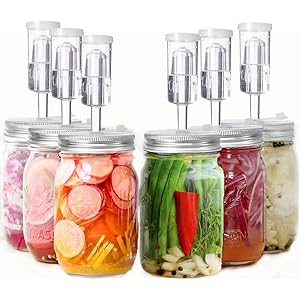Understanding Lactobacillus Acidophilus
Lactobacillus acidophilus is a type of beneficial bacteria that plays a crucial role in maintaining gut health. This probiotic strain is known for its ability to ferment lactose, the sugar found in milk, into lactic acid. This process not only aids in digestion but also helps to create an acidic environment in the gut, which can inhibit the growth of harmful bacteria. Understanding the sources of Lactobacillus acidophilus is essential for anyone looking to enhance their digestive health and overall well-being.
Best Sources of Lactobacillus Acidophilus
When considering what is the best source of Lactobacillus acidophilus, fermented foods are at the forefront. Foods such as yogurt, kefir, and sauerkraut are rich in this probiotic strain. Yogurt, in particular, is often highlighted for its high content of live cultures, including Lactobacillus acidophilus. When selecting yogurt, it is important to choose varieties that specify “live and active cultures” on the label to ensure you are getting the beneficial bacteria you seek.
Yogurt: A Top Choice
Yogurt stands out as one of the best sources of Lactobacillus acidophilus due to its widespread availability and versatility. Not only does it provide a creamy texture and delicious taste, but it also offers a significant amount of probiotics that can support gut health. Additionally, yogurt can be easily incorporated into various meals and snacks, making it a convenient option for those looking to increase their intake of Lactobacillus acidophilus.
Kefir: A Probiotic Powerhouse
Kefir is another excellent source of Lactobacillus acidophilus, often regarded as a more potent probiotic option compared to yogurt. This fermented milk drink is made by adding kefir grains to milk, resulting in a tangy beverage that is rich in probiotics. Kefir not only contains Lactobacillus acidophilus but also a diverse array of other beneficial bacteria and yeasts, making it a fantastic choice for those seeking a comprehensive probiotic source.
Fermented Vegetables and Sauerkraut
Fermented vegetables, such as sauerkraut and kimchi, also provide Lactobacillus acidophilus among other beneficial bacteria. These foods undergo a fermentation process that enhances their probiotic content, making them a valuable addition to a gut-friendly diet. Incorporating fermented vegetables into your meals can not only improve digestion but also add unique flavors and textures to your dishes.
Get more content like this!
Sign up to receive updates and new terms first hand.
Probiotic Supplements
For those who may not consume enough fermented foods, probiotic supplements can be an effective alternative to obtain Lactobacillus acidophilus. These supplements come in various forms, including capsules, tablets, and powders, and can provide a concentrated dose of probiotics. When choosing a supplement, it is essential to look for products that specify the strain of Lactobacillus acidophilus and ensure they contain a sufficient number of colony-forming units (CFUs) for effectiveness.
Importance of Dietary Fiber
While focusing on what is the best source of Lactobacillus acidophilus, it is also important to consider the role of dietary fiber in supporting probiotic health. Fiber acts as a prebiotic, providing nourishment for beneficial bacteria in the gut. Foods high in fiber, such as fruits, vegetables, whole grains, and legumes, can help create an optimal environment for Lactobacillus acidophilus to thrive and multiply, enhancing the overall benefits of probiotics.
Combining Sources for Maximum Benefit
To maximize the benefits of Lactobacillus acidophilus, it is advisable to combine various sources in your diet. Incorporating yogurt, kefir, fermented vegetables, and fiber-rich foods can create a synergistic effect, promoting a healthy gut microbiome. This diverse approach not only ensures a steady intake of probiotics but also supports overall digestive health and well-being.
Consulting with Healthcare Professionals
Before making significant changes to your diet or starting probiotic supplements, it is wise to consult with healthcare professionals. They can provide personalized recommendations based on your health needs and dietary preferences. Understanding what is the best source of Lactobacillus acidophilus for your individual situation can lead to better health outcomes and improved digestive function.




